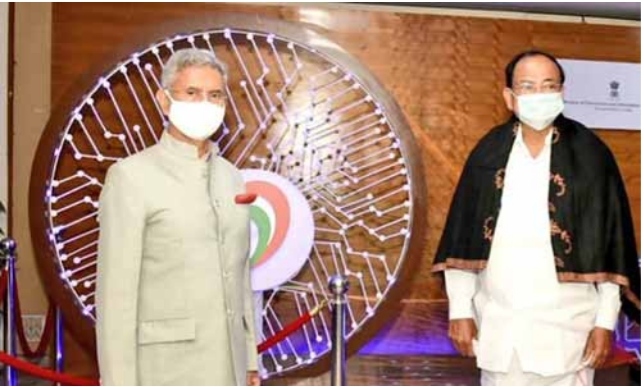India Distances Itself From China’s ‘One Belt, One Road’ at SCO

New Delhi is very clear that it will decouple from China economically and socially till a final In do Tibetan and a Chinese Tibetan border are demarcated on ground.
So displaying its concerns regarding any Beijing driven economic grouping, India had earlier decided against joining the Regional Comprehensive Economic Partnership (RCEP), world’s largest trade deal recently signed by the 10 members of the Association of Southeast Asian Nations (ASEAN) and Australia, China, Japan, South Korea and New Zealand.
Now on Monday India did not join the other members of the Shanghai Cooperation Organisation (SCO) in backing China’s “One Belt, One Road” (OBOR) which is also known as the Belt and Road Initiative (BRI), President Xi Jinping’s flagship programme on trade and connectivity.
In the joint communique issued on the conclusion of the 19th meeting of the Council of Heads of Governments (Prime Ministers) of the SCO, all member states, barring India, “reaffirmed” their support for OBOR.
“The Republic of Kazakhstan, the Kyrgyz Republic, the Islamic Republic of Pakistan, the Russian Federation, the Republic of Tajikistan and the Republic of Uzbekistan, reaffirming their support for China’s “One Belt, One Road” (OBOR) Initiative (BRI), note the ongoing work on joint implementation of this project, including efforts to bridge construction The Eurasian Economic Union and OBOR,” said the statement.
India has always maintained that the China-Pakistan Economic Corridor (CPEC) which is a part of BRI, runs through Pakistan-Occupied-Jammu and Kashmir (PoJK) and therefore is violative of India’s territorial integrity and sovereignty.
In fact, in his opening remarks, Vice President Venkaiah Naidu, who chaired the meet as India holds the presidency of the forum, reminded the gathering of the need to safeguard “the sovereignty and territorial integrity of SCO Member States”, albeit in the context of countries raising bilateral issues in such multilateral platform. He was alluding to Pakistan.
While addressing the issue of the coronavirus outbreak, the Vice President also highlighted the need for a reformed multilateral structure in a post-Covid world and how there is a need for “transparency” if global trade has to succeed and flourish.
The other issue that India has with countries in the region joining the BRI is the lack of transparency in the projects that China is investing in and the terms and conditions of loans being given by Beijing.
Without naming China, VP Naidu said that for trade to be fair, all the members should be transparent.
“For trade to play its part in the recovery process, all the partners must be trustworthy and transparent. It is trust and transparency that determines the sustainability of our global trade and nations must demonstrate their compliance with multilateral rules of trade to remain a part of the system,” he said.
He asserted, “While undertaking individual efforts, we must take note of collective efforts to work on this situation. The ongoing crisis has exposed the world to vulnerabilities, forcing us to find ways to support each other.”




